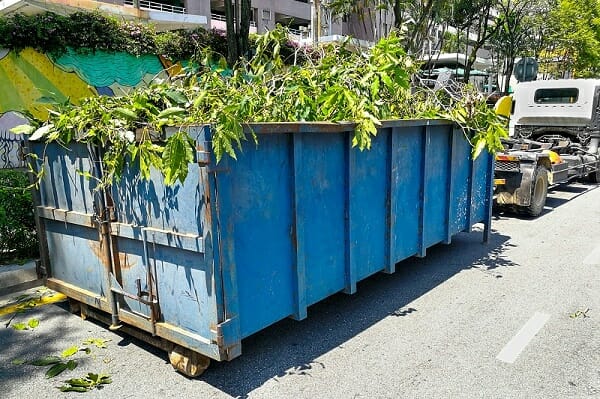- BY Evelyn
- POSTED IN Dumpster Rental
- WITH 0 COMMENTS
- PERMALINK
- STANDARD POST TYPE
If you are thinking of growing a garden in summer, then you might want to consider the sustainability and environmental impact of your garden. Gardening might seem like a hobby that is always eco-friendly, but it is not actually that simple. A poorly managed garden can be surprisingly damaging to the environment, and thinking carefully about how to reduce that impact is important. If this is something you are starting to consider, read on below for some tips on how to improve the sustainability of your garden this year.
EWM Dumpster Rental of Montgomery County provides cheap rates on rental dumpsters to large and small towns throughout northern Maryland, including the town of Barnesville and the 20838 ZIP code.
What is Sustainable Gardening?
Sustainable gardening is a term used to cover any kind of gardening done with a focus on reducing the environmental impact of your garden. That means growing plants that are not harmful to the environment, reducing the use of toxic chemicals, and trying to recycle as much as possible in order to reduce all of your impact. Sustainable gardening methods use resources carefully and thoughtfully and avoid using tools and methods that cause harm to the local environment.
Below, you will find five top tips for easily reducing your garden’s environmental impact in 2022.
Choose Plants with Sustainability in Mind
The plants that you choose for your garden can have a huge impact on the sustainability and biodiversity of your garden. Choosing plants that are native to your area is one of the best ways to garden sustainably, as they will be properly adapted to your local climate and ecosystem.
Native plants will be better suited to the soil conditions and climate of your area, meaning they will require less watering and fertilizing than imported plants. They will also be much better for local wildlife such as birds and insects!
You can also consider varieties and species of plants that are resistant to pests or droughts, meaning that they can look after themselves much better without water and pesticides.
Water Conservation for Maximum Garden Sustainability
One of the biggest problems with most gardens is water waste. Watering is a valuable and limited resource, and many gardens waste an enormous amount of it. One of the best ways to grow your garden sustainably is to limit your water use, recycle water that would otherwise go to waste, and only water your plants when they really need it.

Reusing rainwater is a great way to reduce the water impact of your garden. Collect it in a large container and save it for when your garden needs a drink, allowing you to water your plants without ever having to turn on the faucet. You can even use water from unfinished glasses of water or water bottles for your garden – just do not use soapy dishwater!
Compost your Garden Waste and Food Waste
Garden management produces waste, and there is always a bit of food waste produced by any household. Instead of just throwing that out, why not try composting it to make your own natural fertilizer?
Composting allows you to turn organic material into a natural fertilizer, allowing you to add valuable nutrients to the soil in which you are growing your plants without needing to rely on synthetic fertilizers. The runoff from synthetic fertilizers can flow into local waterways, causing ecological disasters such as algal blooms, which can be devastating for the environment.
Using natural compost instead of synthetic fertilizer allows you to protect the environment from this runoff, as well as reduce the amount of garden and food waste that you send to landfill. The natural nutrients in your compost can help improve the soil in your garden, and the compost itself can help to trap moisture in the soil, allowing you to conserve water and reduce your garden water use.
All you have to do is save all the weeds and leaf cuttings or grass trimmings from your garden, as well as any organic matter from your kitchen (but not meat scraps!). Place these in a compost bin or compost pile, and leave them for a few weeks to cure properly. After a few weeks, when the compost in the bin looks dark and kind of crumbly, you can add it to your garden just like any other fertilizer.
Use Recycled Materials to make Gardening Supplies
Recycling can be a significant part of sustainable gardening, as well as simply reducing the costs of maintaining your garden. There are several different ways you can recycle for your garden, and with a little creative thought, you can repurpose a huge amount of home waste into helpful garden supplies.
Rather than buying mulch, try making your own from fallen leaves or shredded newspaper. Old cardboard is useful, too, as you can place it between rows of plants to reduce weed growth. Plastic bottles make great watering cans or planters for larger seedlings, while toilet paper rolls or egg cartons are ideal containers for small indoor seedlings. With a little creativity, the options are endless!
Ditch the Machinery and Garden by Hand
Gas-powered machinery such as lawnmowers or mechanical tills cause pollution and waste fuel. Instead of using a powered mower, try using a manual push mower to cut your grass. Similarly, using a shovel and a rake instead of a mechanical alternative might take a bit more effort on your part, but the environmental impact will be far better. Cutting back on mechanical help might seem intimidating at first, but you will get used to it quickly, and the long-term benefits can be huge!
Conclusion
Sustainable gardening does not have to be hard. If the list above looks too intimidating, just pick one or two small changes! You do not have to commit to everything at once, and a small change towards sustainability is better than nothing.

 610-679-8449
610-679-8449